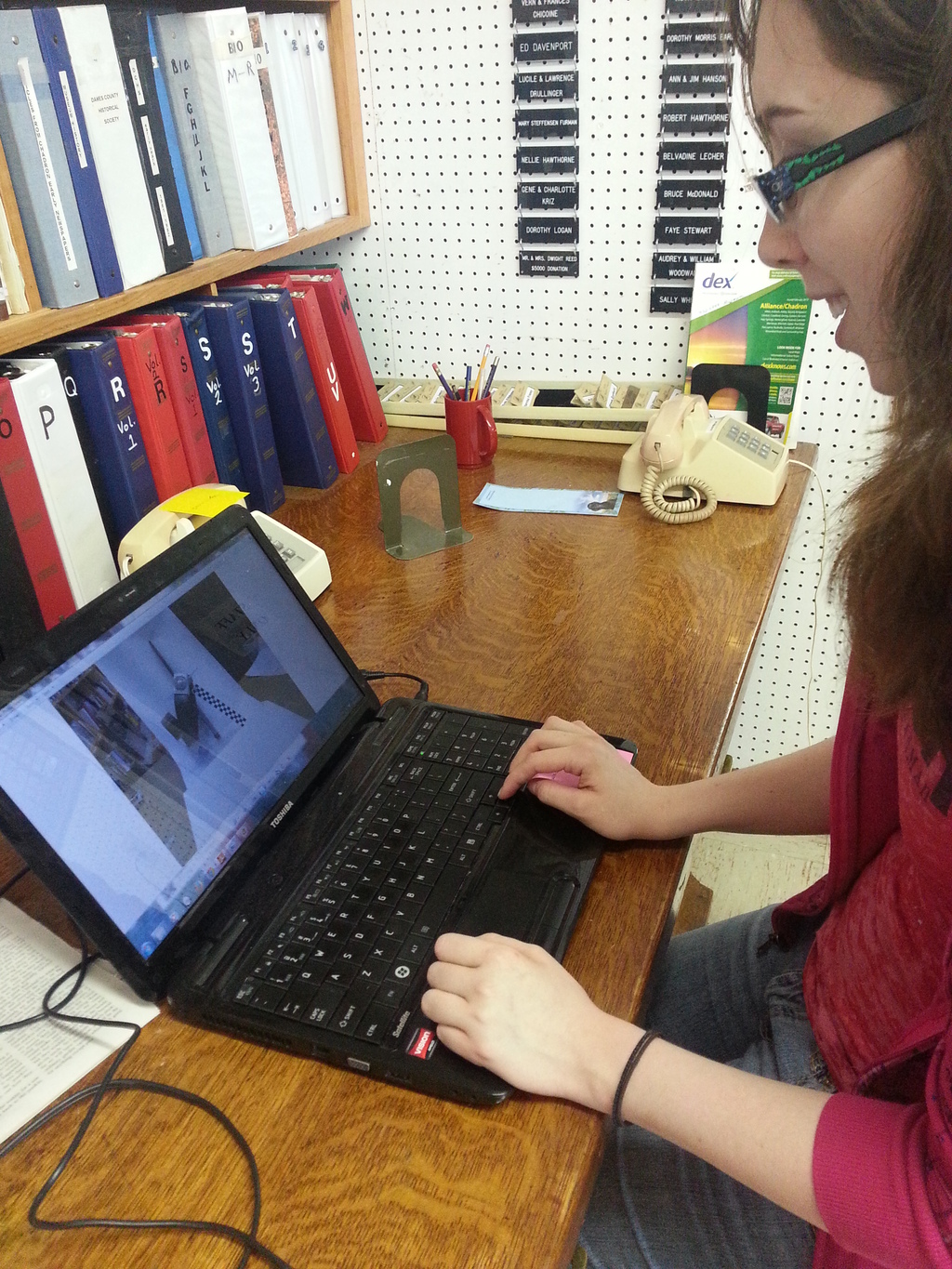CSC students to reap stories and images through History Harvest

Chadron State College students enrolled in Dr. David Nesheim’s History 465/Processes in North American West course this semester have joined History Harvest, a project based at the University of Nebraska-Lincoln.
History Harvest is designed to collect, preserve, and share digital images of historical objects and video interviews with local people nationwide who know the stories behind the objects.
The public History Harvest event in Chadron will be March 29 from 9 a.m.-1 p.m. in the Mari Sandoz High Plains Heritage Center. Students in History 465 invite the public to bring in historical objects to be digitally photographed in an effort to preserve family and community history.
Two smaller, private events at Prairie Pines and Crest View residence centers will take place prior to the public event at the Sandoz Center.
Interviews will be conducted with those who bring the objects in order to better interpret the past of rural Nebraska and its residents. The information and photos of objects will be placed on the History Harvest Website historyharvest.unl.edu.
This website contains archive video from other History Harvest events, a student blog, a Twitter feed and other resources.
Nesheim said, “The History Harvest combines some of the most exciting recent developments in higher education, including community involvement, student driven inquiry, and digital technology. The students record the peoples’ history from the grass roots, and it offers an alternative to the MOOC model of top down distribution of information.”
The term MOOC refers to Massive Open Online Courses.
“It has been fun to watch the class gain first hand familiarity with the nuts and bolts of the internet, from the digitization of objects to the completion of metadata information that allows the website to function. Even better, the students are creating an online presence and developing transferable skills that will help them in their future careers,” Nesheim said.
A presentation proposal from the class has been accepted for a regional Phi Alpha Theta conference at the University of Wyoming in Laramie April 11-12.
The students will present a roundtable discussion titled “Digital History and Rural America: A Roundtable Panel on Chadron State College’s History Harvest.”
In preparation for the project, the class has conducted research of individual and local histories in the CSC Reta King Library, documented historical items at the Dawes County Historical Museum and connected via social media with their counterparts at UNL and the University of Nebraska-Kearney.
Committee chairs for the project include Julya Briseno, publicity, Misty Dickey, technology and Chad March, client relations.
Dr. Robert Knight, chair of the social science and communication arts department said, “History Harvest events offer our students high-impact learning opportunities that bring the study of history alive. We are fortunate to have faculty members who put in the extra time and energy that make study in their discipline engaging and meaningful for students. History Harvest exemplifies well the type of innovative pedagogy and curricula that we are developing for our students at Chadron State College.”
Category: Campus News, Social Sciences

